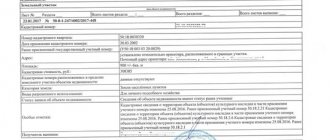Number of times allowed to participate
How many times can one person privatize housing? On July 4, 1991, law number 1541-1 “On the privatization of housing stock in the Russian Federation” came into force.
Its creation was aimed at fully working out the nuances of the transition of the housing stock managed by the state into private ownership.
According to Article 11 of this law, you can participate in the procedure for obtaining housing from the state free of charge only once .
Even if a person refuses previously privatized property, it returns to the ownership of the state, but the possibility of repeating the procedure for such a person is not restored.
The only exception is made for those persons who, at the time of privatization of the real estate in which they were registered, were minors.
In this case, citizens can participate in the procedure again. But only once. The law does not allow repeated participation .
Find out on our website about the rights and obligations of the owner and registered persons in a privatized home, as well as the statute of limitations for invalidating privatization.
How to take part in privatization again?
The first participation in the procedure does not cause any particular difficulties, especially since we have already described the step-by-step algorithm in our previous articles. You can check out:
“How to privatize an apartment, housing?”
“What documents are needed to privatize an apartment?”
“How to privatize land under a private house?”.
Re-privatization is not much different. The main thing is to adhere to the established procedure and provide a complete package of documents. Let's start with step-by-step instructions.
Order and procedure for re-privatization
Those wishing to take advantage of the second chance to privatize an apartment or housing must do the following:
- Prepare documents for participation in the free procedure.
- Confirm that resubmission of the application is justified.
- Write a statement to the local administration.
- Wait for approval from the authorities.
- Complete the procedure by registering property rights in Rosreestr.
Thus, the procedure practically coincides with the algorithm for privatizing housing for the first time. Particular attention should be paid to the second stage - the evidence provided determines whether your application will be approved or rejected.
Documentation
The submitted documents can be divided into two categories: application + title documents for real estate, as well as evidence of legal participation in privatization for the second time.
The package of documents includes:
- a copy of the applicant's passport with the original provided;
- children provide a birth certificate;
- documentation for the apartment - in particular, the registration certificate (a copy is sufficient);
- a document confirming the right to transfer living space into private ownership - a social tenancy agreement or a warrant (for old apartments);
- extract from personal account(s);
- permission for privatization - housing should not be withdrawn from circulation;
- written statements from all participants;
- a refusal certified by a notary, if not all residents agree;
- extended extract from the house register;
- confirmation of legal participation in the procedure for the second time (certificate of minor age at first participation, certificate of membership in the category of residents of the Far North, certificate of participation in a paid housing transaction, etc.);
- other documents upon request.
The above documents are annexed to the application to the administration. At the same time, you will need to draw up a separate application to Rosreestr.
The lawyers of our portal will best tell you about all the nuances. Request a free consultation and receive comprehensive answers to questions about the re-privatization of housing in Russia.
How many apartments can one person privatize?
Federal law allows one person or several people to re-register an apartment at the same time. The first case is registration of housing as sole ownership; the second is shared ownership of each of the participants. This begs the question, is it possible to privatize an apartment for one person in 2020 if he already owns another property?
It is impossible to answer the question right away - there are many examples of both approval and refusal by the authorities. General rule: privatization applies to one residential premises, and if children are involved in the procedure again - to a second housing or a share in it .
Tenants of municipal housing under a social tenancy agreement can privatize an apartment provided they have not participated in the procedure until now (Article 2 of the Federal Law “On Privatization...”). Consequently, any refusal to privatize, even if a person has other housing, will be unfounded.
But on the other hand, if a person has personal property, but still lives in a municipal apartment and wants to register it as his own, this is a reason to terminate the social tenancy agreement. Such cases do occur and the administration’s actions will be considered justified. Especially with a shortage of social housing for low-income categories of the population. Naturally, if the contract is not terminated and the employer applies for privatization, he is unlikely to be refused.
How many times can one person privatize housing?
You will learn the answers to these and some other questions from our article.
- 18.1)
 Is it possible to participate in privatization a second time?
Is it possible to participate in privatization a second time?- 12.1) Order and procedure for re-privatization
We recommend reading: Where to file a complaint against an employer in Volzhsky
What kind of housing can be privatized?
Not every residential property can be privatized. Obviously, if the property is already privately owned, the use of such a procedure is not appropriate. Privatization is not used in a number of other cases either. That is why the list of objects that can actually be privatized includes real estate:
- municipal fund, such living space belongs to the municipal fund, but under certain conditions can pass into private hands;
- official, if the enterprise to which the object belonged was liquidated and in the presence of other circumstances provided for by law;
- provided under a social tenancy agreement;
- provided to military personnel and their families.
However, the list of housing that can be obtained under the privatization program is valid only if certain conditions are met. They are assumed for each participant, the object itself, etc.
For example, the types of real estate that cannot be privatized include:
- housing located in a military camp;
- emergency apartment;
- service living space.
As a result, not all types of real estate can be transferred from state (municipal) property to private property. Some may not be subject to this procedure, while others may only be subject to certain conditions provided for by regulations.
Who can use the repeated right for free?
Despite the right introduced into the law to participate in privatization once only, there are exceptions to this rule.
Re-registration of housing ownership is carried out only in the following situations:
- If the privatization process was carried out before the child came of age, then after he turns 18 years old, he has the right to re-register the property.
- Persons left homeless as a result of natural disasters or terrorist attacks are also eligible for re-privatization. If they lived in a privatized apartment before the tragedy, then when they receive a new one, they can re-privatize it completely free of charge.
- Residents of the Far North can also obtain the right to re-register privatization. When moving, they must transfer their previous apartment or house to the former owners. Newly acquired municipal housing is privatized.
- According to the court ruling, if it is proven that the privatization process was carried out with deviations from the law.
It should be taken into account that if a citizen independently made a decision to deprivatize housing, then re-registration of ownership of the apartment becomes impossible. It is considered that the citizen has already exercised his right.
Read the article about pensioners being exempt from paying personal property taxes here.
Who else is eligible for re-privatization?
Thus, in general cases, persons who have protested the previous procedure in court and achieved its recognition as void can once again obtain possession of their housing free of charge. That's not all. In accordance with Article 11 of the mentioned law, certain categories of Russians have the right to participate in privatization events again. Here we are talking about:
- minors;
- those who have lost their housing;
- citizens who moved from the Far North and former Soviet republics.
Thus, in particular, persons who have not yet reached their 18th birthday and who took part in privatization together with their parents (guardians) have the right to acquire ownership of other housing as adults. The young man will have to officially live in the apartment for at least 6 years.
The loss of premises received from the state as a result of a natural disaster, a man-made disaster or, for example, a terrorist attack, gives rise to a second free privatization. Of course, housing in this case will be different.
In the situation with former residents of the Far North, everything is somewhat different. They receive the right discussed in this article when moving to other regions of the country and only on the condition that the previous apartment was transferred to the balance of the municipality.
It will not be possible to register real estate for free if the previous premises were:
- Sales;
- donated;
- bequeathed.
What kind of housing cannot be privatized even for the second time?
Before you become a home owner, you need to know its status. It is quite possible that the apartment cannot be transferred to individuals - it will not be possible to register it as private property even if you try again.
It is prohibited to privatize the following real estate:
- service housing (with a number of exceptions);
- dormitories;
- housing located in closed towns (for example, military);
- emergency facilities.
The last three categories are not subject to free privatization in any form. Service apartments, although rarely, are privatized. The main condition is the consent of the owner of such housing. For example, if the department gives the go-ahead, an employee of the organization will be able to submit documents for the transfer of a company apartment. But, we repeat, only with the consent of the department and only if there are compelling reasons.
Which apartments are prohibited from privatization
When starting the procedure, you should clarify what status the premises you are privatizing have. Some types of housing cannot be transferred into private hands. This is about:
- service and departmental apartments (with rare exceptions);
- dormitories owned by organizations;
- squares located in military units and towns;
- emergency facilities.
In the first of these cases, everything depends on the administration of the enterprise - if it gives consent, then the premises can be privatized.
Is everyone entitled to free housing?
According to Article 2 of the Law “On the Privatization of the Housing Stock of the Russian Federation”, all those people who are registered in the premises acting as an object can participate in the procedure for free housing, if the right to reside in it was obtained on the basis of a social tenancy agreement and recorded by the appropriate order.
Current legislation does not impose age restrictions on participation. This means that those people who have not yet reached the age of majority and live in a specific apartment or house can take part in obtaining housing.
However, after reaching the age of eighteen, such citizens can participate in such a procedure independently .
In the event that registration of private ownership occurs in relation to housing, the use of which takes place under a social tenancy agreement, the person applying for participation is obliged to permanently reside in this premises.
In this case, his claims to receive housing from the state will be completely justified.
If a person does not live permanently in a specific living space, he does not have the opportunity to privatize it.
Persons declared legally incompetent by a court , but their interests must be represented by guardians or representatives of guardianship and trusteeship authorities.
There are also no restrictions on participation for disabled people, who can represent their interests both independently and with the help of their representatives (guardians or persons for whom the corresponding notarized power of attorney has been issued).
Find out on our website how to determine whether your property has been privatized, where to start the registration process, and whether you can submit papers through the MFC. You can also download a sample application for privatization, as well as a written refusal to participate in it, from us.
Return of rights after deprivatization
Is it possible to re-privatize an apartment? Who is involved in the privatization of housing after deprivatization? The possibility of re-privatization may arise for those individuals who have returned their own apartment to the state, but under certain conditions .
We are talking about the deprivatization of the apartment, that is, the recognition of a previously concluded deal as invalid and the return of housing to the ownership of local authorities.
The process of deprivatization (deprivatization) can be carried out on two bases:
- Termination of the contract at the initiative of the owner. The procedure is carried out at the request of the participant in the privatization of the apartment, who considered living in a state apartment more profitable for him than owning his own square meters. Citizens often abandon their previously owned housing for reasons of material gain, family reasons or security reasons.
- Recognition of a contract as invalid due to a violation of someone's rights. The initiator of such a process can be government bodies and persons whose rights were violated during the privatization process.
How many times can you privatize an apartment? Re-privatization of an apartment in the event of voluntary termination is impossible . A citizen who returns an apartment to the state loses the right to register ownership of both this living space and any other subsequently received under a social tenancy agreement. The right to free privatization under such conditions will be considered realized.
If the contract is declared invalid, completely different consequences arise. According to Article 167 of the Civil Code, the transaction loses its validity and is recognized as imperfect , therefore the right to free privatization may be considered unrealized.
Civil Code of the Russian Federation Article 167. General provisions on the consequences of invalidity of a transaction
- An invalid transaction does not entail legal consequences, except for those related to its invalidity, and is invalid from the moment of its completion.
- If the transaction is invalid, each party is obliged to return to the other everything received under the transaction, and if it is impossible to return what was received in kind (including when the received is expressed in the use of property, work performed or service provided), reimburse its value, if there are other consequences of the invalidity of the transaction not provided for by law.
- If it follows from the essence of a voidable transaction that it can only be terminated for the future, the court, declaring the transaction invalid, terminates its validity for the future.
- The court has the right not to apply the consequences of invalidity of a transaction (clause 2 of this article) if their application would contradict the fundamentals of legal order or morality.
A person who knew or should have known about the grounds for the invalidity of a contested transaction, after the recognition of this transaction as invalid, is not considered to have acted in good faith.
A contract of transfer of ownership carried out in violation of the law is subject to challenge.
The grounds for filing a claim are the following factors:
- the transaction was carried out by proxy by a person who exceeded his authority;
- the consent of parents or guardians was not obtained for the privatization of housing for minors from 14 to 18 years of age;
- at the time of signing the document the person was under pressure or in an inadequate state;
- the consequences of the conclusion were unknown to the citizen due to misleading;
- in the process, the rights of persons who had the right to receive a share were violated.
The statute of limitations in this case is three years from the moment the interested party learned of the violation of the privatization procedure (Article 196, 200 of the Civil Code).
Who can privatize an apartment
Who has the right to privatize an apartment? How many times can housing be privatized, how many apartments can be privatized, and is it possible to re-privatize an apartment? All these questions concern every citizen who owns housing only as a social tenant, and not as a full owner.
When privatizing housing, you need to accurately distinguish the difference between private and municipal property, assessing all the pros and cons of this ownership option. Privatization is not a privilege for every person, since sometimes it has certain conditions, the satisfaction of which is not always possible.
That is why the law precisely establishes who can participate in privatization and how many times an apartment can be privatized without violating the rules of law and the interests of third parties.
General provisions
Privatized property represents those objects that were previously in full possession of the municipality, but after the citizen went through a procedure defined by law, they became private property. Many people can apply for this opportunity.
However, such re-registration in large numbers has restrictions, which force citizens to think about who has the right to participate in the privatization of an apartment, how many times can one participate in the privatization of an apartment, and what kind of living space can be the object of such relations.
One person has the opportunity to take part in privatization once, even if at different times he lived and was registered in different apartments.
Since the re-registration procedure under consideration involves the acquisition of home ownership, it will not be possible to go through the same path in the future.
However, when a citizen has an apartment in his possession, but it was obtained in a different way, for example, he took part in a transaction for the purchase and sale of property, then the person has the right to receive another apartment, using the method of its privatization.
Accordingly, answering the question of who has the right to privatize housing, it is enough to say that it can be any registered citizen, but one person is given only one opportunity for privatization.
Speaking about the subjects of privatization and who can privatize an apartment, minors should be mentioned separately. How many times can they participate in the privatization of housing? There is an exception to the rule for children.
The child participates in the re-registration of housing together with his parents or legal representatives, provided that he is not yet eighteen years old.
At the same time, he is allowed to independently carry out the privatization of housing again, but after he turns eighteen years old.
The circle of persons who cannot be participants in privatization is also determined, even if they live in the apartment:
- Persons who are not included in the social tenancy agreement. It is not enough to have a residence permit, and only a permanent one, you need to be a direct party to the agreement.
- Persons who do not live in the apartment for a long time. In other words, the living space must be “reserved” for someone, otherwise there is a risk of losing the apartment. Exceptions include long-term absence due to the need for treatment or training.
The type of registration can also play a role, since today temporary registration does not allow taking part in privatization.
In order to receive a privatized apartment, you must initially have registration in it, otherwise you will first need to obtain registration with the consent of the residents and the tenant.
The reason for refusal to privatize can be considered both the status of a citizen and the status of the housing itself, which may not always be the object of the relationship in question.
These apartments include the following:
- housing that is located in a house that is in disrepair and poses a threat of destruction;
- housing that has dormitory status;
- housing that is part of a military camp.
In some cases, permission may be required not only from the municipality, but also from other committees, for example, when the house is considered an architectural monument.
The procedure for re-registration of housing
Privatization always takes place under the control and with the permission of the municipality. This procedure is provided only because it is the municipality that is the full owner of this or that apartment; accordingly, the citizen enters into a relationship with it and makes a transaction under which the housing will be transferred to him with the right of the same full ownership.
During the procedure, all persons included in the rental agreement must be present, as well as other registered persons confirming their consent to participate in the re-registration.
The first thing you should pay attention to is the documentation, which must be prepared in advance.
The package of papers includes the following:
- text of the social rental agreement;
- technical and cadastral passports for the apartment;
- documents identifying the participants in the re-registration;
- extracts issued from the house register and registration chamber;
- a certificate stating that the applicants have not previously taken part in the procedure under consideration;
- a certificate confirming the absence of debts on utility bills;
- a decision of persons who voluntarily refused to participate in the procedure, which must be certified by a notary;
- birth certificates for those participants who have not yet reached fourteen years of age.
Along with these documents, an application for privatization is filled out, which is submitted to the municipality.
Speaking about determining the procedure for privatization, it should be noted that most of the time is spent on obtaining documents.
First, you need to obtain all the certificates provided for in the list, obtain extracts, and if there is no cadastral and technical passport, then contact specialists who can draw up these documents, which will require additional time and costs.
Next, an agreement is concluded with the municipality that the property is transferred to the ownership of the citizen acting as the applicant.
It is important to understand that having an agreement with local authorities does not make a person a full owner. For a right to exist as a legal fact, it must be registered.
That is why the last step is always to contact the registration authority, which accepts documents for the apartment, including the latest agreement, and, based on them, enters information into the register within five days.
Only after this will a certificate of ownership of a specific apartment be issued, and it will cease to be part of the municipal property.
Both family members of the tenant and other persons who live in the apartment are allowed to take part in privatization. Only an authorized body can limit their right.
The consent of other persons who live in the apartment is a very important point, without which re-registration may be completely impossible.
Citizens often wonder whether it is possible to avoid receiving approval? Yes, but there must be some kind of violation on the part of the registered persons, for example, failure to pay utility bills.
Often they also allocate shares, that is, they determine the size of the apartment that is due to a specific entity, after which they privatize this particular part, while the remaining residents retain the status of tenants and users of the apartment.
Repeated renewal
As noted above, a citizen can resort to the privatization procedure only once. It is free, so this privilege is offered by the state once.
This rule has only one exception, which concerns children, however, other situations are not uncommon.
Moreover, sometimes deprivatization is even used, that is, the transfer of an apartment from private property back to municipal property.
Deprivatization allows for a repeated procedure for re-registration of an apartment into private ownership, which will now be called re-privatization.
Despite the fact that the law provides for such procedures, not everyone can resort to them and not always. Moreover, when it comes to re-privatization, only two categories of citizens, not counting minors, can use this chance.
These include the following groups of people:
- Citizens who, as a result of unforeseen circumstances, natural disasters and man-made disasters, have lost previously privatized housing. After this, they will be provided with an apartment under a rental agreement by the municipality. These persons will be able to re-apply for the privatization of an apartment that has already been newly provided for residence.
- Citizens who are migrants from republics that were previously part of the USSR, as well as from regions of the Far North.
If previously obtained apartments are transferred to third parties through the alienation of property, then even the categories of citizens presented above will lose the opportunity to re-participate in the privatization procedure.
The same rule can be applied to persons under eighteen years of age, but who have already participated in the re-registration of housing previously.
As for deprivatization, that is, the return of housing to the municipality, all citizens can participate in it. However, in order for the apartment to be re-registered in the future, one of two conditions must be met.
An agreement with the municipality on the transfer of housing must either be declared invalid, which is done by the court if the document does not comply with the requirements of the law, or terminated on the initiative of the housing owner himself.
The last option is most common, since citizens are not ready to bear the increased costs of maintaining their own housing, believing that living in municipal apartments is more profitable from a financial point of view.
And at any time, these people will be able to reapply for privatization, since they previously voluntarily returned the property to the municipality.
Thus, every person who is registered and lives in a municipality apartment has the opportunity to re-register it as his or her full ownership.
However, there are always a number of conditions that limit the application of the procedure in question.
You cannot privatize housing more than once in your entire life, with the exception of certain groups of people, and you must also have permanent registration in the apartment and a valid social rental agreement.
How many times can you participate in housing privatization?
Not every citizen can afford to purchase an apartment in cash.
For some, a mortgage loan may be the way out of the situation, while others will be able to receive housing from the state free of charge.
Privatization is just such an option that allows you to obtain municipal real estate as personal property. However, not everyone knows how many times in life you can participate in the privatization of an apartment or other housing, and how to do it.
What kind of housing can be privatized?
Not every residential property can be privatized. Obviously, if the property is already privately owned, the use of such a procedure is not appropriate. Privatization is not used in a number of other cases either. That is why the list of objects that can actually be privatized includes real estate:
- municipal fund, such living space belongs to the municipal fund, but under certain conditions can pass into private hands;
- official, if the enterprise to which the object belonged was liquidated and in the presence of other circumstances provided for by law;
- provided under a social tenancy agreement;
- provided to military personnel and their families.
However, the list of housing that can be obtained under the privatization program is valid only if certain conditions are met. They are assumed for each participant, the object itself, etc.
For example, the types of real estate that cannot be privatized include:
- housing located in a military camp;
- emergency apartment;
- service living space.
As a result, not all types of real estate can be transferred from state (municipal) property to private property. Some may not be subject to this procedure, while others may only be subject to certain conditions provided for by regulations.
How many times in your life can you go through privatization?
The answer to the question about the number of times one can participate in privatization is clear.
The legislation explains that any person has the right to receive an apartment from the municipal fund and another that can be privatized only once in his life.
However, there is a certain exception to this rule.
If one of the participants in the privatization process was under the age of 18, then after he reaches the age of majority, he has the right to participate in the procedure again. This is the only exception.
In addition, if someone privatized a living space and then changed their mind and carried out the reverse procedure, they are considered to have exercised their right and can no longer repeat the process. All these rules are set out in Art. 11 of Law No. 1541-1 of the city.
Types of privatization
The privatization process can be applied not only to living space.
The fact is that property that is in state or municipal ownership can be transferred into personal ownership, for example:
- Living spaces;
- land;
- factories and enterprises.
The difference between the listed types is that housing can be registered free of charge, while land and enterprises can be privatized for a fee.
That is why the principle of privatization can be divided into:
- gratuitous;
- carried out on a paid basis.
Depending on who exactly owns the privatized property, two types of privatization can be distinguished:
- state property;
- municipal.
As a result, there are several types of process of transfer of ownership from state or municipal form to private. Each of them has its own characteristics and design nuances.
Conditions and who has the right to privatize an apartment
In some cases, privatization can only take place under certain conditions. They apply to the potential participant, not just the object.
For social hiring
A strictly limited number of persons can apply for real estate under a social lease agreement:
- the tenant and his family members living in a certain living space;
- having a concluded social tenancy agreement.
In this case, persons who are absent but registered in the residential premises can also participate in the procedure, for example:
- working on shifts;
- military personnel;
- serving sentences in places of deprivation of liberty.
Persons who:
- registered at a different address;
- living under a sublease agreement;
- temporary residents.
As a result, the main condition for obtaining ownership of housing on social rent is the existence of an agreement and the fulfillment of certain requirements for the potential owner.
However, some who are absent at the time of implementation of the procedure retain the right to participate in it in the presence of a supporting document confirming that the reason is valid.
For free
The law determines that persons who:
- reside and are registered on it;
- absent, but registered on the premises;
- have a social lease agreement, etc.
As a result, the procedure is carried out free of charge in the vast majority of cases, since all conditions for the candidate’s compliance must be met.
For shares or part of an apartment
The peculiarities of shared privatization are that it results in two types of ownership:
The difference lies in the definition of the right to dispose of one’s own part of the housing and the separation of such parts from the general one.
The conditions for registration of this type of procedure are standard and apply to everyone registered in the living space, and also necessarily to children.
After each family member receives a share, they will be the owners. This means that the fate of the apartment in the future will be decided jointly by all shareholders.
If housing is municipal
There are no separate nuances associated with the ownership of residential premises in the municipal fund.
All the basic requirements that are relevant in the general case are also applicable in the case under consideration.
The right to participate in the process of obtaining personal ownership of a municipal apartment may have persons living in it, members of their family and those who have a social tenancy agreement with the municipality.
As a result of the completion of the procedure, all participants will have the right to independently manage their living space. Without this, in the status of an employer, the listed persons do not have such a right.
Children
If an adult family member takes part in privatization, then the child living with him must be included in the participants.
If for some reason this does not happen, the results of such a procedure may be considered invalid.
In addition, the minor retains the right to re-participate in the process after reaching 18 years of age.
As a result, certain categories of citizens living and using certain types of real estate can privatize residential real estate. Children can participate in the procedure again after they reach the age of 18 years. This is the only exception, since for all other categories of citizens it is possible to pass it once.
How many times can you participate in registration, and who has the right to privatize an apartment?
Privatization has long been the main way of obtaining property rights for many citizens. The law provides ample opportunities for free registration of real estate.
Law on property rights in the Russian Federation
Every citizen legally residing in it has the right to privatize an apartment that is municipally owned.
Participants in the process are all citizens registered in the apartment, including minors.
There are several categories of real estate that the law prohibits from being transferred into private ownership:
- premises in disrepair and subject to demolition;
- service apartments;
- premises in a departmental house;
- dorm rooms;
- housing in military camps.
As an exception, the law provides for the registration of premises in military camps or hostels if the citizen settled there before 2004.
ATTENTION! The procedure is not mandatory for everyone, and therefore you can refuse and not take part in it.
There may be several good reasons for this. For example, you are under a relocation program and must get a new apartment. In this case , it is better to wait and take advantage of the only right to free registration of the housing in which you intend to live for more than one year.
Is it possible to participate in registration twice?
According to current legislation, citizens can participate in privatization once.
At least for free.
Only citizens who were under 18 years of age when participating in the first privatization procedure can register housing for the second time. Such persons have the opportunity to register ownership of real estate free of charge again, but only after reaching the age of 18.
IMPORTANT! All other citizens have only one opportunity to take advantage of the benefits , and therefore before registration you should weigh the pros and cons, assessing the advantages and disadvantages of your home.
Pros and cons of shared privatization
Registration of private ownership of living space is possible for one person or for several persons.
Registration of housing for several citizens at once, receiving equal shares in the property. called shared privatization of an apartment.
Who is entitled to a share? With this registration, the interests of all registered residents are taken into account, including citizens who are under 18 years of age at the time of registration.
A notarized written refusal of registration is required if one of the registered relatives does not want to participate in the registration.
At the same time, he should also not oppose registration by other residents.
If the citizen has already taken part in a similar process, then instead of refusing, he must provide documents confirming the registration of another housing.
IMPORTANT! The share of the “refuser” will be distributed equally among the remaining participants in the process.
However, if he is against the process as a whole, then his decision will block the possibility of registration for other residents.
Of course, a positive point is that each participant, after receiving ownership rights, will be able to sell their part.
However, the following conditions must be met:
- You will need to inform the other co-owners of your intention no later than 1 month before concluding the transaction.
- Preference in repurchasing a share is given to co-owners.
- If they do not agree to buy your share, you can sell it to a third party.
IMPORTANT! You can sell your share to a third party only at the price that you announced to the owners of other shares.
This is the main disadvantage - the complicated procedure for selling your share. Otherwise, you can dispose of your part of the property as you wish (for example, rent it out) without any restrictions.
If there is other housing: these are other restrictions
You can take advantage of the free transfer of rights to an apartment even if you already own real estate.
At the same time, it does not matter how you received the other housing - bought it or received it as a gift - this will not affect the registration procedure in any way.
ATTENTION! The law puts forward only one restriction - everyone can participate in the procedure only once in their life.
There are a number of other obstacles, in addition to the legislative restrictions described above.
For example, the management company may demand payment of housing and communal services debt before they issue you the necessary certificate about the number of registered people in your living space.
Difficulties will also arise if you have already done a redevelopment. Often, during renovations, walls in an apartment are moved, but almost no one receives documentary permission for this.
We also note that a guardian takes part in the registration of housing for an incapacitated citizen, who represents his interests and signs documents on his behalf.
IMPORTANT! The guardian himself will not have any rights to the property - he only performs actions on behalf of the ward citizen.
How can I find out who participated in the registration?
There are several ways to check the list of owners who took part in the registration of real estate.
The surest way to check the owners is to order an extract from Rosreestr.
It lists all citizens who have a share in the apartment.
You will find out additional information about who is the owner during privatization if:
- receive an extract from the house register, which contains detailed information about all residents at the time of registration of the premises;
- request the relevant information from the Federal (Registration Service Office);
- contact the tax office. There they will be able to give you information about all the owners paying tax for a specific apartment.
In addition to the article, we suggest watching a video about how and who can privatize an apartment:
So, who can participate in the privatization of an apartment? The law allows the registration of housing for a wide range of owners who received real estate for use before 2004. It is important that you can register real estate free of charge even if you are already the owner of another home.
How much does it cost to re-privatize an apartment?
The privatization procedure is a free service that is provided by the state of the Russian Federation, but when registering it and preparing a package of documents, the citizen will need to spend money on processing the transaction at all stages.
Based on practice, there are mandatory costs and additional ones. Mandatory ones usually include:
- payment of state duty - its cost is fixed and amounts to 300 rubles;
- preparation of an extract from the Unified State Register of Real Estate;
- extract from the BTI;
- notarial services;
- payment for cadastral and technical passports;
- payment for redevelopment, if it was carried out;
- others.
Additional costs may include:
- services of a real estate agency or private realtor;
- ordering an accelerated procedure for privatizing an apartment;
- ordering additional certificates;
- others.
Repeat procedure rules
How to privatize an apartment if you have already participated in privatization? Despite the conditions prescribed in the legislation for each person to participate once in the procedure for transferring housing ownership, there are a number of circumstances when repeated participation is possible .
Who can participate in the privatization of an apartment in the Russian Federation again? Repeated participation in the procedure of certain categories of citizens: according to Part 2 of Art. 11 of the Law “On Privatization...” the right to re-participation is reserved for the following categories of persons:
- Initially, those who participated in the process were minors. If, upon reaching adulthood, they receive another municipal housing, they will be able to transfer it into ownership. The age at which these persons moved out of their previous housing does not matter. The only condition is that they do not own an apartment or a share thereof.
- Participation in the process for the second time is reserved for persons who have lost their living space as a result of emergency incidents, man-made disasters, natural disasters, or terrorist acts. If they lived in privatized housing before the tragedy, then having received a new one under a social tenancy agreement, they have the right to register it as their property.
- Immigrants from the Far North and former republics of the USSR have similar rights. Housing at the previous place of residence must be transferred by them to the former owners, and the newly received social housing after the transfer procedure can be privatized.
The right to re-privatization by this category is lost if the previously registered housing was transferred to third parties under alienation agreements.
Is it possible to do it again?
Thus, you can see that privatization is a one-time procedure. However, is it possible to privatize another apartment if the citizen has already participated in privatization? Oddly enough, in some cases - yes.
First of all, you need to remember about Part 2 of Art. 11 of the Law of the Russian Federation. It states the following: if a citizen has already participated in the privatization of housing when he was still a minor (children under 18 years of age are not deprived of the right to free acquisition of ownership of municipal or state housing), then, having matured and become an adult, such a citizen can once again privatize new property for free housing , if it was provided to them after their 18th birthday under a social tenancy agreement.
In addition, partly under the concept of “re-privatization” also falls the situation when housing was privatized, but later the court, due to violations of the law during the privatization process, declared the transfer of housing ownership invalid and o) it, transferring it back to the previous owner at the claim of one of parties in privatization relations (we tell you more about in what cases deprivatization and deprivatization are possible here).
In this case, after the violations have been eliminated, the residents can try again to obtain ownership of the apartment through privatization. However, in essence, there will be no secondary use of the right: if deprivatization took place in court, then, in essence, citizens could not use the right.
Their actions will only mean that they have exercised the right to privatization and have already disposed of their new property.
This video talks about whether it is possible to participate in privatization again:











